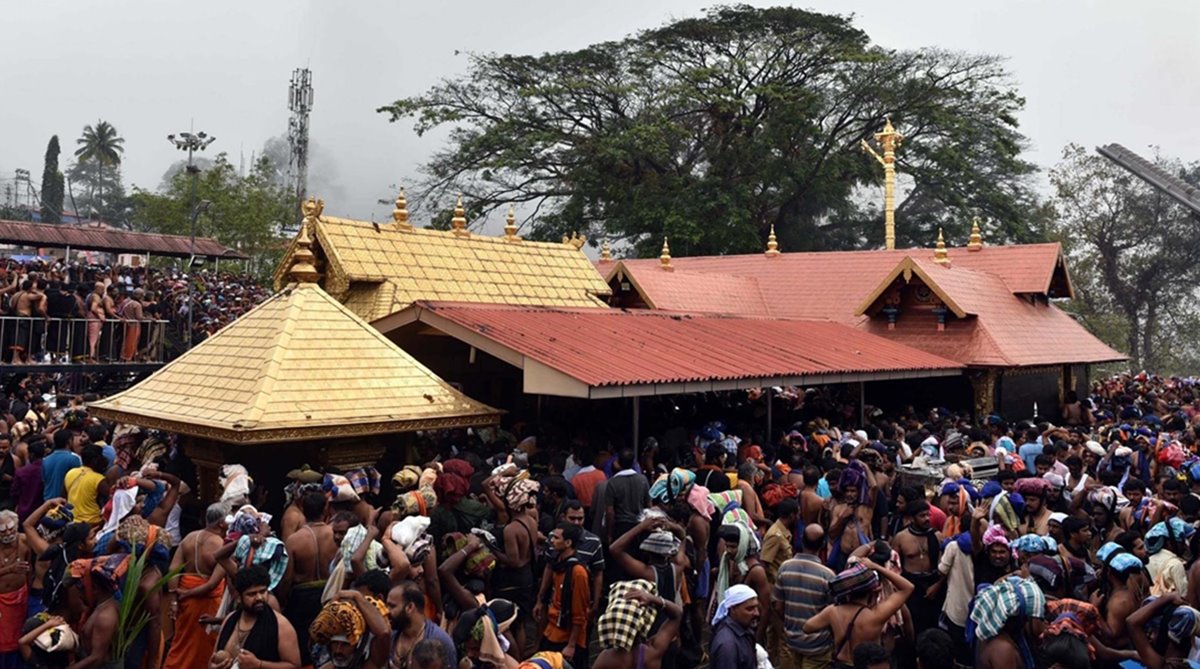Will knock the door of SC if rights of Himachal Pradesh not given by the Centre: CM
Chief Minister Sukhwinder Singh Sukhu has said that he will meet the Union Ministers to release the aid to Himachal under the Post Disaster Need Assessment (PDNA).
The apex court says celibate status of the deity cannot be a ground for barring entry of women as it is a Hindu temple

The Ayyappa Temple in Kerala's Sabarimala bans entry of girls and women aged 10 to 50. (File Photo: IANS)
The Supreme Court on Wednesday reserved its verdict on a batch of petitions challenging the ban on entry of women in the age group of 10-50 into the Sabarimala temple in Kerala. It said celibate status of deity could not be a ground for barring entry of women as it is a Hindu temple and not a temple of a particular denomination.
A five-judge Constitution bench headed by Chief Justice Dipak Misra reserved its verdict on a batch of pleas challenging the ban on entry of females between the age group of 10 to 50 years into the 800-year-old shrine after hearing the matter for eight days.
Advertisement
“We will pass orders. Judgment reserved. Hearing concluded. Advocate on Record of both the sides will collect written submissions and compile it and submit before the court in seven days,” said a bench, also comprising Justices R F Nariman, A M Khanwilkar, D Y Chandrachud and Indu Malhotra.
Advertisement
READ | Women have constitutional right to enter Sabarimala temple: Supreme Court
Senior advocate Jaideep Gupta, appearing for Kerala government, said the custom of barring women between the age group of 10 to 50 years was not permissible under the Constitution.
“Sabarimala temple cannot claim to be a distinct denomination to claim a custom which bars entry of women of 10-50 year age group to temple. It is not a temple of a particular denomination but a Hindu temple,” he said.
Gupta, referring to the arguments of the petitioners who had challenged the ban on entry of women into the temple, said they pointed out that Kerala high court had held that it was a denominational temple.
“It is my submissions, that it is not a denominational temple and the religious rights are not protected”, he said.
Citing an example of Lord Jagannath Puri temple, Gupta said it i also not a temple of particular denomination while on the other hand temple of Ramakrishna Paramhans is of a particular denomination as he is being worshipped by a particular sect.
He said even Dakshineswar temple in Kolkata, where Shri Ramakrishna Paramhans himself worshipped, is not a temple of any particular denomination. “Dakshineswar temple is a Hindu temple where goddess Kali is worshipped,” he said and added that “the celibate status of deity cannot be a ground to bar women’s entry into the Sabarimala temple”.
The apex court had on Tuesday said the constitutional scheme prohibiting exclusion has “some value” in a “vibrant democracy”.
The court was hearing a batch of pleas filed by petitioners Indian Young Lawyers Association and others. The Kerala government had on 18 July told the top court that it favours their entry.
The Sabarimala issue is being looked at by a five-judge bench which was referred to by a three-judge bench on 13 October last year after framing five “significant” questions, including whether the practice of banning entry of women into the temple amounted to discrimination and violated their fundamental rights under the Constitution.
Advertisement